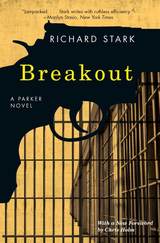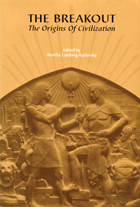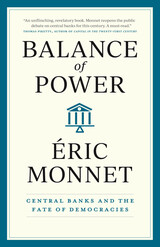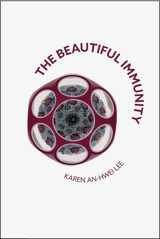
With Parker locked up and about to be unmasked, Breakout follows his Houdini-like escape from prison with a team of convicts. But when a new heist and new dangers—con artists, snitches, busybodies, eccentrics, and cops—loom among the dark alleys and old stone buildings of the big city to which they’ve fled, Parker soon learns that not all prisons have bars.
Featuring new forewords by Chris Holm, Duane Swierczynski, and Laura Lippman—celebrated crime writers, all—these masterworks of noir are the capstone to an extraordinary literary run that will leave you craving more. Written over the course of fifty years, the Parker novels are pure artistry, adrenaline, and logic both brutal and brilliant. Join Parker on his jobs and read them all again or for the first time. Just don’t talk to the law.

Amid Africa's deepening economic and political crises of the last two decades, African musicians who developed these genres faced the need to cross cultural boundaries, or "break out," and achieve a hit in the international marketplace. Challenging conventional assumptions, Gary Stewart demonstrates for the first time the true dimensions of this struggle to create music that will qualify as both an authentic cultural expression and an export commodity. From accounts of the outrageous Fela, who snipes at African leaders and recounts his days with Isis in ancient Egypt, to S. E. Rogie, who lurches from the pinnacle of stardom in West Africa to delivering pizzas in California, to Olatunji, who finds new life with the Grateful Dead, these are the stories of Africans straddling traditional life and an encroaching modernity—and also the stories of third world musicians surmounting political and economic chaos at home and carrying their music to a world dominated by Western cultural and economic power.

For much of the twentieth century, Mesopotamia was thought to he the singular “Cradle of Civilization,” and the agents of change that brought it about were thought to be demographic, ecological, and technological. Bronze Age Mesopotamian accomplishments were believed to have diffused outward, influencing the development of civilization in the rest of the world. Part of this Mesopocentric view was revised as archaeological evidence revealed that other unique civilizations had existed in both the Old and New Worlds, but the traditional Near Eastern pattern of development continued to serve as a model.
In the mid-1980s, however, Harvard’s Kwang-chih Chang proposed in Symbols—a publication of Harvard’s Peabody Museum and Department of Anthropology—that China’s first civilization did not evolve according to the conventional Mesopotamian model and argued instead for a new paradigm for understanding the origins of civilization in ancient China and the New World.
In this collection of subsequent Symbols articles and other essays, Maya and Near Eastern studies specialists engage in a stimulating debate of Chang’s thesis, also presented here.
READERS
Browse our collection.
PUBLISHERS
See BiblioVault's publisher services.
STUDENT SERVICES
Files for college accessibility offices.
UChicago Accessibility Resources
home | accessibility | search | about | contact us
BiblioVault ® 2001 - 2024
The University of Chicago Press









